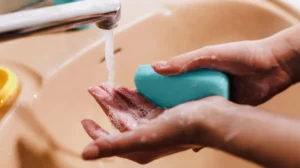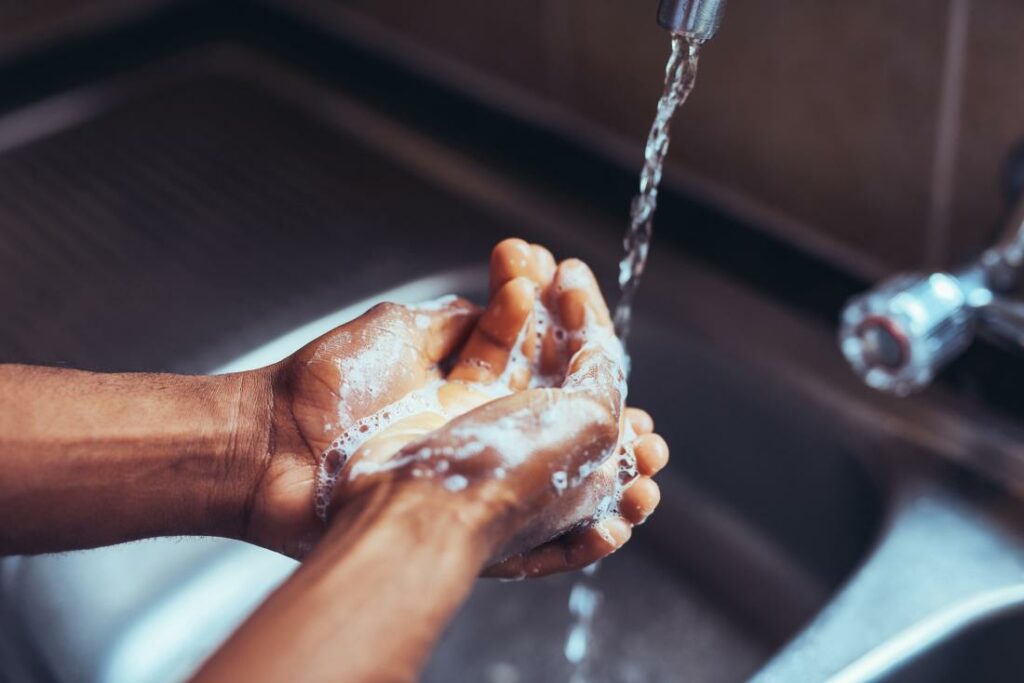Do you have obsessive-compulsive disorder (OCD)? If so, then you may struggle with hand washing. This is a common symptom of OCD. Many people find that they cannot stop washing their hands, even if they know that it is not necessary. In this blog post, we will discuss 10 tips for OCD hand-washing treatment.
Contents
Understanding OCD Hand-Washing
 People with OCD often engage in repetitive behaviors such as hand-washing. This is an attempt to reduce anxiety related to the perceived risk of contamination. It’s important to understand that this anxiety and fear are irrational and unfounded. But it can still be very real for the person experiencing it.
People with OCD often engage in repetitive behaviors such as hand-washing. This is an attempt to reduce anxiety related to the perceived risk of contamination. It’s important to understand that this anxiety and fear are irrational and unfounded. But it can still be very real for the person experiencing it.
Those with hand-washing OCD may feel compelled to wash their hands several times an hour until their skin becomes raw and irritated. They may also feel anxious if they are unable to access a sink or soap right away.
It’s important to understand that this behavior is not meant to be malicious or vindictive. It is simply a response to overwhelming feelings of fear and uncertainty. This can make it difficult for those affected to seek help or change their behavior.
Fortunately, there are several treatment options available that can help those with hand-washing OCD manage their symptoms and live a more fulfilling life. Make sure to discuss these options with your doctor or mental health professional.
Top 10 OCD Hand-Washing Treatment Options
OCD hand-washing treatment is best approached with a combination of cognitive-behavioral therapy, medications, and lifestyle changes. Following are the top 10 treatment options to help you manage your OCD hand washing:
Cognitive Behavioral Therapy (CBT)
CBT helps people learn how to identify irrational thoughts and replace them with more helpful thinking patterns. It also teaches techniques that can help reduce the frequency and intensity of hand-washing rituals. CBT works through repeated practice and is considered a very safe, non-invasive form of treatment. For instance, if OCD hand washing is triggered by a fear of germs and dirt, CBT might involve gradually exposing to the feared object until it no longer triggers anxiety.
Exposure and Response Prevention (ERP)
ERP is a type of CBT that focuses on repeated exposure to situations that trigger hand-washing rituals. Through ERP, people learn how to tolerate their distress and resist the urge to perform their rituals. In this therapy, the fear gradually decreases as the person is exposed to the feared object or situation over and over while not performing their hand-washing rituals.
Medications
Prescription medications such as selective serotonin reuptake inhibitors (SSRIs) are often used to treat OCD hand-washing. SSRIs work by increasing the amount of serotonin in your brain, which helps regulate mood and behavior. Other medications, such as antipsychotics, are sometimes used in conjunction with SSRIs to reduce symptoms.
Mindfulness and Meditation
Another OCD hand-washing treatment option is mindfulness and meditation. Mindfulness helps people become aware of their thoughts and feelings without judgment, while meditation allows them to focus on their breathing and stay in the present moment. Both of these practices can help relax your body and mind, reduce stress levels, and make it easier to resist urges to perform rituals.
Lifestyle Changes
Certain lifestyle changes can also help reduce OCD hand-washing. For instance, try to get adequate sleep, exercise regularly, and eat nutritious foods. Also, try to limit your exposure to triggers by avoiding certain people or situations that may cause anxiety. Finally, take time out of each day to relax and decompress.
Acceptance and Commitment Therapy (ACT)
 ACT is a form of psychotherapy that focuses on helping people take control of their thoughts and emotions. The goal of ACT is to help people accept their experience, while also committing to making changes in their behavior. Mindfulness and acceptance are the main techniques involved in this therapy, which can be helpful for managing OCD hand-washing urges.
ACT is a form of psychotherapy that focuses on helping people take control of their thoughts and emotions. The goal of ACT is to help people accept their experience, while also committing to making changes in their behavior. Mindfulness and acceptance are the main techniques involved in this therapy, which can be helpful for managing OCD hand-washing urges.
Family Therapy
Family therapy can be beneficial for those experiencing OCD hand-washing because it involves the entire family. In this type of therapy, family members learn strategies to help their loved one manage their symptoms and stay on top of treatment plans. It can also be a great way to build understanding and compassion within the family.
Support Groups
Support groups are another great way to get help for OCD hand-washing. These groups provide a safe, judgment-free space where people can share their experiences and learn coping strategies from others. Many support groups offer tips on how to better manage stress, anxiety, and other symptoms associated with OCD.
Nutritional Supplements
Certain nutritional supplements may help reduce symptoms of OCD hand-washing. For instance, studies have found that omega-3 fatty acids can help improve mood and reduce anxiety. Supplements such as zinc, magnesium, and vitamin B complex are also thought to be beneficial for reducing OCD symptoms. However, it’s important to talk to your doctor before taking any supplements as they may interact with the medications you’re taking.
Challenge Your Thoughts
Finally, challenging your thoughts is a great way to reduce OCD hand-washing. This means questioning the validity of your negative or irrational beliefs about germs and dirt. By doing this, you can slowly learn how to move away from these obsessive thoughts and focus on more positive ones instead.
It’s important to remember that OCD hand-washing is a treatable disorder and that there are many different treatment options available. With the right combination of therapy, medications, lifestyle changes, and support from family and friends, you can manage your symptoms and lead a fulfilling life.
Be patient with yourself as you learn to cope with OCD hand-washing urges. It may take some time to find the right combination of treatments that work for you, but it’s worth it in the end. With dedication and perseverance, you can overcome this disorder and take control of your life.
Is Washing Hands A Lot OCD?
 The answer to this question is no. Washing your hands frequently and properly does not necessarily mean a person has an obsessive-compulsive disorder (OCD). It is important to remember that everyone should practice good hygiene, such as regularly washing their hands with soap and water.
The answer to this question is no. Washing your hands frequently and properly does not necessarily mean a person has an obsessive-compulsive disorder (OCD). It is important to remember that everyone should practice good hygiene, such as regularly washing their hands with soap and water.
Doing so helps protect against the spread of disease, including preventing illnesses like the flu, colds, and other respiratory infections. This is especially important during the current COVID-19 pandemic. It is also true that some people have a heightened sense of cleanliness due to anxiety or fear. While this could be seen as an OCD trait, it does not necessarily mean they have OCD.
People with OCD may feel an excessive sense of cleanliness or fear of contamination that goes beyond what is considered normal. This could lead them to repetitively wash their hands. But it could also manifest in other ways such as avoiding certain objects or situations due to a fear of germs.
So, it is important to remember that when it comes to washing your hands, everyone should practice good hygiene by washing their hands regularly. However, if you or someone else shows an excessive fear of germs or a need to constantly wash their hands, it may be worth considering whether they have OCD and seek professional help.
Conclusion
In conclusion, OCD hand-washing treatment options are available to help individuals cope with their symptoms. Cognitive-behavioral therapy, mindfulness-based stress reduction, and medication are all effective ways to reduce obsessive-compulsive hand-washing behaviors. Although everyone’s experience is unique, these treatments can be helpful in reducing the impact of OCD on daily life.
But be sure to research and discuss these treatments with your doctor before starting a new treatment plan. Each person’s experience and symptom severity are unique. So it’s important to work with a professional who can help you find the best OCD hand-washing treatment for you.
Don’t hesitate to contact us immediately for more information! OCD is a mental health disorder characterized by obsessions and compulsions. Contact us today if you have any queries regarding OCD treatment, or ERP therapy the experienced therapists at OCDMantra can help: Book a trial OCD therapy session


